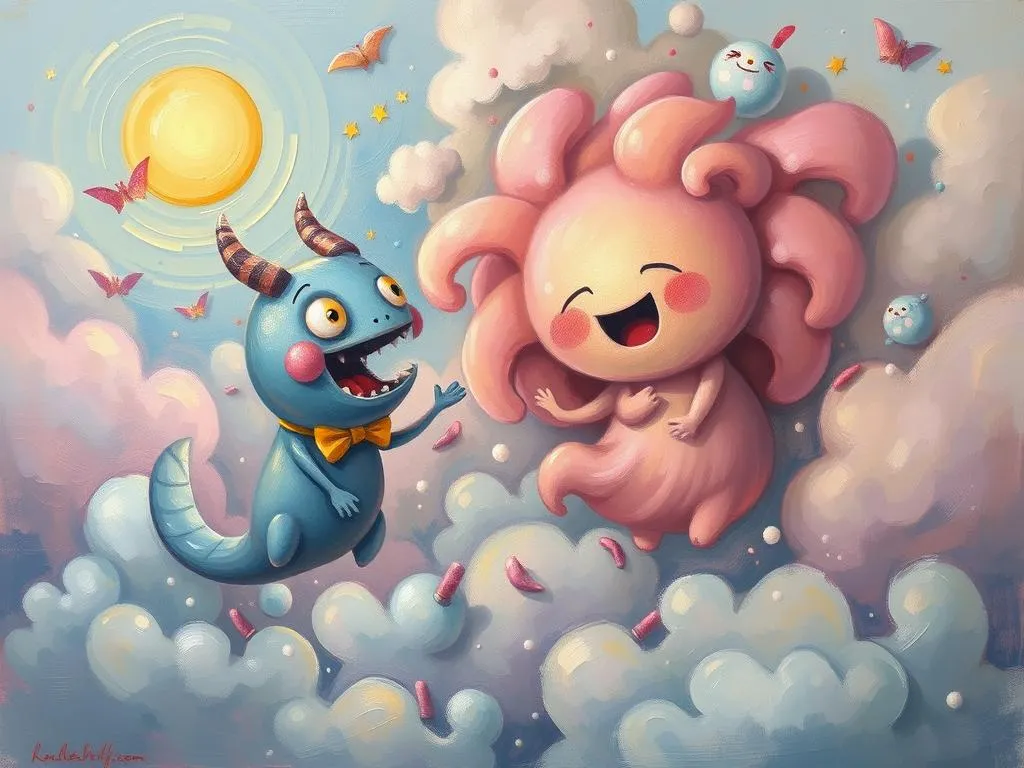
Dreams have long captivated human curiosity, serving as a bridge between our conscious and subconscious minds. Among the myriad of dream themes, misbehaving stands out as particularly intriguing. The concept of misbehavior in dreams can evoke a range of emotions, from guilt and shame to liberation and joy. This article delves into the symbolism and meaning behind misbehaving dreams, explores various scenarios that may arise, and offers insights on how these dreams can connect to our waking lives.
Symbolism and Meaning
When we think of misbehavior, we often associate it with actions that defy social norms or personal ethics. In the context of dreams, misbehaving can symbolize a variety of internal conflicts or desires. Freedom is one of the most significant themes here. When individuals find themselves misbehaving in their dreams—whether it’s breaking rules, acting impulsively, or indulging in forbidden pleasures—it may signify a longing for freedom or a desire to break away from the confines of daily life.
Another critical symbol in misbehaving dreams is the inner child. Often, these dreams can represent a part of ourselves that yearns for playfulness, spontaneity, and a break from responsibility. In our waking lives, we may feel bogged down by obligations, and dreams of misbehavior can act as a conduit for our suppressed desires to have fun and be carefree.
Moreover, guilt often accompanies dreams of misbehavior. If a person engages in actions that they would typically consider wrong, it may reflect an internal struggle with their moral compass. These dreams could serve as a way for the subconscious to process feelings of shame or regret regarding real-life actions or thoughts. Thus, misbehaving in dreams can be a complex interplay of desire, guilt, and the quest for freedom.
Key Scenarios and Variations
The nuances of misbehavior in dreams can vary significantly based on the scenario presented. For instance, a dream where one is cheating on a partner may evoke feelings of guilt and anxiety. This scenario might suggest a need to explore elements of dissatisfaction within the relationship or a desire for emotional fulfillment elsewhere. Alternatively, if the dreamer feels empowered rather than guilty during the act, it could indicate a quest for passion and excitement that may be lacking in their waking life.
In contrast, a dream where someone is stealing might carry a different connotation. Stealing in dreams can symbolize a desire to claim something that feels out of reach. It might reflect feelings of inadequacy or a belief that one must take what they need to feel validated or worthy. This scenario invites the dreamer to consider what they feel they are lacking and how they might attain it through more positive means.
Another variation might involve public misbehavior, such as being caught trespassing or acting inappropriately in a social setting. This type of dream can reflect fears of judgment or a deep-seated anxiety about how others perceive us. It may also signify a desire to break free from societal expectations and embrace one’s true self, regardless of the opinions of others.
Each scenario illuminates different facets of human experience, revealing how our subconscious uses misbehavior as a symbolic language to communicate our deepest fears, desires, and conflicts. Thus, the interpretation of misbehaving dreams is highly contextual and relies on the specific actions, feelings, and settings involved.
Real-Life Connections and Takeaways
Connecting misbehaving dreams to real-life situations can lead to profound self-reflection. When we wake from such dreams, it might be helpful to pause and contemplate what aspects of our lives feel restrictive or unfulfilled. Are there areas where we feel stifled or unable to express our true selves? Misbehaving dreams can serve as a mirror, reflecting our inner struggles and desires.
For practical advice, consider keeping a dream journal. Recording these dreams can provide valuable insights over time, allowing you to track patterns and recurring themes. This practice can facilitate a deeper understanding of your subconscious motivations and desires. When you reflect on your dreams, ask yourself questions like: What did I feel during this dream? What aspects of my life might be reflected in this misbehavior? How can I channel these feelings into constructive action in my waking life?
Additionally, engaging in conversations about your dreams with trusted friends or a therapist can provide new perspectives and insights. Sharing your experiences can help you untangle complex feelings and identify underlying issues that may be manifesting in your dreams.
Ultimately, misbehaving in dreams can be a powerful vehicle for self-discovery. They encourage us to explore the boundaries between our desires and societal expectations. Instead of viewing these dreams solely as manifestations of guilt or shame, consider them an opportunity for growth. How might embracing your inner mischief lead to greater authenticity in your life?
In conclusion, misbehaving in dreams is a rich theme that invites exploration of our deepest desires and conflicts. By understanding the symbolism and varying scenarios associated with these dreams, we can glean insights that resonate with our waking lives. Embrace the complexity of these dreams and allow them to guide you toward greater self-awareness and personal freedom.







